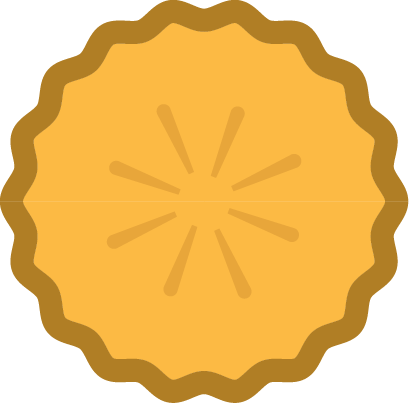 |
|
| Get to know this badass gut microbe |
| Even on a quiet day, your stomach teems with activity. There are hundreds, maybe thousands, of different bacteria species living in our guts. The strains vary from person to person — and by a lot. |
| Some, like Prevotella, can do harm, while others are helpful. And which ones prevail from day to day may depend on a tangled web of factors, including what you eat, your sleep quality, medications you take, and so much more. Some bacteria may even have the power to affect how you think, feel, and even socialize, as well as to steer your overall digestive health. The main point to remember is that your gut is connected to just about every other part of your body. |
| One type of bacteria that appears again and again in probiotic research is Lactobacillus reuteri, aka LL Cool Reuteri. (Just kidding — L. reuteri is the name to look out for.) |
| Here are some of the benefits it's been linked to: |
|
|
|
|
|
|
|
| (If you want to dig deeper into the science, this paper is a good roundup of research on L. reuteri in human health and disease.) |
| Sounds like a good thing to have around, at least in your gut. You can boost your levels by taking a probiotic supplement containing one or more strains of L. reuteri or by consuming fermented foods and drinks such as yogurt, kefir, and kimchi. It may also help to limit antibiotic use (when possible) and take up these gut-healthy habits. |
| Tell us: Have you ever tried probiotics, or has anyone recommended them to you? Share your experience with us at nutritionedition@healthline.com. (Please note that we may use your name and response in an upcoming newsletter!) |
|
| |
| What we're using |
| If you're curious about the immune, digestive, and women's health benefits of probiotics, Garden of Life's Once Daily Women's formulation is a great place to start. It contains L. reuteri and 15 other probiotic strains and was named the overall best in our recent dietitian's roundup of the best probiotics for women. In other words, it has been thoroughly vetted by our team and is an evidence-based product from a reputable brand. It's shelf-stable, too, so there's no need to keep it in the fridge like other products. Let us know if it worked for you! |
 | | | Garden of Life Once Daily Women's Probiotic Capsules |  | | 4.6 | 47,786 ratings | | | Details: No Gluten, No Dairy, No Soy, 30 Capsules | | | | |
|
|
 |
|
| We focus on a different nutrient each week — some well known, others more unusual. This week's mineral is… |
| Holy Moly-bdenum |
| You may not have heard of it, but molybdenum is essential for human health (that means your body can't live without it and can't create it on its own!). You don't need very much of it, but this low-key element is critical for a whole range of biological processes. |
| One of its most important functions is converting sulfite to sulfate, which makes the essential amino acid methionine into something your body can use. It's also involved in the production of uric acid (a waste product that also acts as an antioxidant) and assists other enzymes in the breakdown of drugs and toxins. |
| So don't fade molybdenum. While deficiency in this micronutrient is rare, it can result in a variety of symptoms, such as fatigue, rapid heartbeat, and neurological problems. The richest sources are usually beans, lentils, grains, and organ meats, particularly liver and kidney. |
| Where will our spotlight land next week? |
|
|
| What we're digesting |
| 🍌 16 best foods for potassium. Pack your plate with these potassium-rich foods to reap the benefits of this essential mineral — regulating fluids, reducing stroke risk, and more. |
| 🥭 Mango: Health benefits and how to eat it. Studies link mango to several health benefits, such as improved immunity and digestive health. It might even lower the risk of cancer. |
| 🐸 What are food swamps, and do you live in one? Some places have more stores selling highly processed foods than stores selling more nutritious options. But who is most affected? |
| 💧 9 hydration apps to track your water intake. Having a hard time figuring out how much water you drink per day? Consider downloading one of these apps to help you. |
|
| Thanks for reading! I hope this newsletter gave you some ideas for how to get to your nutrition goals without getting swamped along the way. |
|
| Until next time, |  | Take care of yourself, and we'll see
you again soon! | | | | |  | | This edition was powered by | | guilt-free food photography | | |
No comments:
Post a Comment